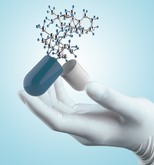Biosimilars
Bevacizumab biosimilar Vegzelma approved and Aybintio launched in Canada
The bevacizumab biosimilar Vegzelma produced by Celltrion received full label approval from Canada’s drug regulator, Health Canada (HC), on 3 January 2023. Back in November 2022, bevacizumab biosimilar Aybintio by Samsung Bioepis had been launched in Canada by Organon, offering a more affordable treatment for Canadian patients suffering from certain types of aggressive cancer.
Clinical study advances for Alvotech golimumab and Dr Reddy’s rituximab biosimilars
In January 2023, Alvotech announced that it has initiated a pharmacokinetic study for AVT05, a biosimilar candidate to Simponi® and Simponi Aria® (golimumab). In addition, Dr Reddy’s Laboratories Ltd announced the successful completion of clinical studies of its proposed rituximab biosimilar candidate, DRL_RI. This is now ready for filing in markets such as the US and Europe.
Best-value biological selection making: more to consider than only price
A recent paper by Barbier et al. described the criteria to be considered when selecting best-value biological, emphasizing that more factors should be taken into account than only the price, and the authors proposed an updated approach - a model, and guidelines to assist healthcare professionals to make transparent and evidence-based decisions [1].
US PBMs add multiple Humira biosimilars to formularies
In the US it has been announced that several pharmacy benefit managers (PBMs) will be adding multiple biosimilar versions of AbbVie’s Humira (adalimumab) to their formularies in 2023.
US vs Germany and Switzerland: US biosimilars market lags with higher prices
In Germany and Switzerland, more biosimilars were marketed and at lower prices than in the US between 2011 and 2020, finds a JAMA Network Open article [1].
New insulin glargine and potential adalimumab interchangeable biosimilars
The US Food and Drug Administration (FDA) awarded Eli Lilly’s Rezvoglar, an insulin glargine biosimilar, the interchangeable designation in late 2022. This means that in the US, Rezvoglar can now be substituted at the pharmacy level for the originator, Sanofi’s Lantus, without a doctor’s prescription, provided state pharmacy law permits the switch. In addition, a study revealed that Pfizer’s adalimumab biosimilar may also soon achieve this status.
Canada’s Ontario introduces biosimilars switching policy
The Canadian province of Ontario is the latest to introduce a biosimilars switching policy. Under the terms of the policy, Ontario Drug Benefit (ODB) recipients who are on an originator biological will be required to transition to a Health Canada approved biosimilar version of the drug.
Biosimilar advances for Alvotech-Teva and setback for Biocon Biologics
Alvotech and Teva Pharmaceuticals announced in January 2023, that the US Food and Drug Administration (FDA) accepted for review a Biologics License Application (BLA) for AVT04, Alvotech’s proposed biosimilar to Stelara® (ustekinumab). Meanwhile, Biocon Biologics received a complete response letter (CRL) from FDAregarding its application for an insulin aspart biosimilar (filed by its partner Viatris).
Drug survival of adalimumab biosimilars in psoriasis treatment in Spain
A review by López-Ferrer A et al. entitled ‘Drug survival of adalimumab biosimilars in real-world treatment of psoriasis: A Spanish multicenter study’ provided perspective of the factors associated with biosimilar adalimumab survival in Spain [1].
Advances for Bio-Thera’s secukinumab and mepolizumab copy biologicals
China’s Bio-Thera Solutions announced in November 2022 that dosing has begun in a phase III clinical study for BAT2306, a proposed copy biological of arthritis anti-inflammatory treatment, Cosentyx (secukinumab). In addition, the company also recently announced a phase I clinical study to compare the pharmacokinetics and safety of BAT2606, a proposed copy biological of asthma treatment, Nucala (mepolizumab), to US-sourced and EU-sourced reference product in normal healthy volunteers.













